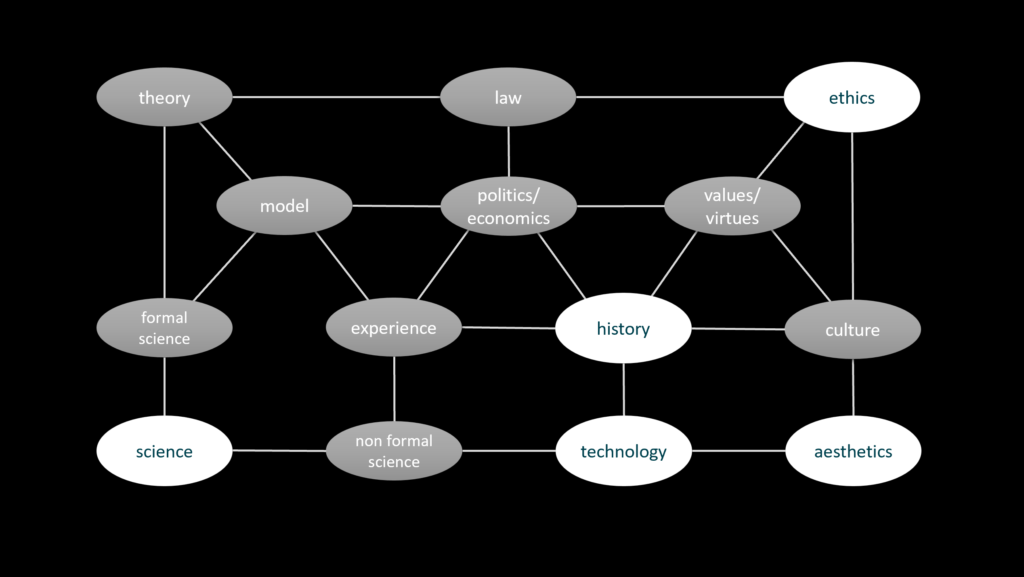
Arranging concepts (i.e. delimiting and linking them) in a coherent and concise manner supports or even grounds clarity. However, devising syntheses constitutes an activity whose complexity increases with knowledge growth and academic specialization. Well, without a conception of the world in which we live that is sufficiently backed up and condensed, how can we define a political, a moral or a personal direction? Unawareness would likely reduce the field of possibilities, wouldn’t it?
To the previous epistemological pitfalls are added those inherited from traditions of thought whose objective has not necessarily been to delimit the concepts as precisely as possible. Indeed, traditional philosophical idealisms, from Plato to Hegel via Hume, have endeavoured to unify the many, particularly through an idealization of Being and Nature, defining non-formal and non-empirical conceptual limits. Their reflections included a substantial ethical dimension, specific to “wisdom” and associated with the political and moral issues of their time.
Another pitfall, partly linked to the previous one, comes from the fact that establishing conceptual limits, that is categorizing, forms a delicate syntactic and semantic exercise, at the very least, historically entangled with the exercise of power, which the critical philosophies of Marx, Nietzsche, the Frankfurt School, Foucault or Bourdieu emphasized with acuity. To categorize, to define, amounts to set up the social reference of communication and thought, therefore a common reference. Conversely, questioning opens minds to other ways of arranging concepts.
To say that concepts express the way society represents things is also to say that conceptual thought is contemporary with humanity. We therefore refuse to see in it the product of a more or less late culture. A man who would not think in concepts would not be a man; because it would not be a social being.
Émile Durkheim, The Elementary Forms of the Religious Life
The question of knowledge and that of freedom have interpenetrated since the dawn of philosophy and science. They participate in a cognitive activity which aims, on the one hand, to clarify as far as possible things that are difficult to grasp and, on the other hand, to carve out perspectives contributing to my personal orientations.
Contact : damien[dot]gimenez[at]gmail.com
Translations are carried out with the help of ChatGPT.